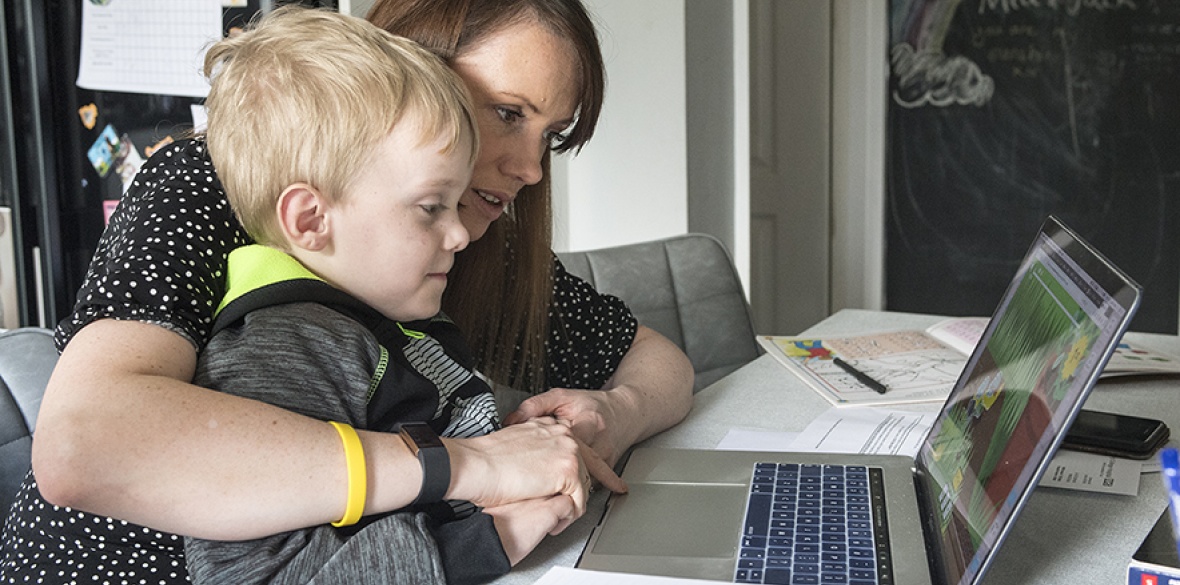This is the last article you can read this month
You can read more article this month
You can read more articles this month
Sorry your limit is up for this month
Reset on:
Please help support the Morning Star by subscribing here
ON International Women’s Day we come together to renew our campaign for equality and liberation for women.
No-one expected what happened in 2020. Women have borne the brunt of the Covid-19 crisis on the front line and at home — but at every stage of this pandemic their needs have been overlooked.
A key tool to fight the pandemic is self-isolation after Covid exposure. Yet women find it harder to self-isolate, because many fewer can get decent sick pay.
Around 1.6 million low-paid women are excluded from getting statutory sick pay because they don’t earn enough. And those who can get statutory sick pay are expected to get by on just £95 a week.
When doing the right thing leaves you having to choose between paying the bills and feeding your kids, no wonder so many don’t self-isolate.
The government’s support schemes have also failed to take account of women’s lives.
Self-employed women who have taken maternity leave lost out on vital financial help from the self-employed income support scheme at a time when they need the money the most. And furlough had no protection to prevent hourly rates falling beneath the national minimum wage, which hit women harder.
And the impact of school closures and a lack of childcare has put many women in an impossible situation because the government put no support in place.
TUC polling found seven in 10 mums who asked for furlough for childcare reasons had their requests turned down by their employer.
And one in six mums (16 per cent) — mostly those in low-paid jobs — told us that they had been given no choice but to reduce their working hours due to school and nursery closures.
For single mums — nine in 10 single parents are women — the situation has been even worse as they are less likely to have someone to share the burden of care with.
And the government recently announced delays to gender pay gap reporting meaning enforcement will not begin until October, sending a worrying message about the importance given to gender equality.
It’s not just a nice addition in good times that can be shelved when the going gets tough.
When you look at the sum of women’s experiences in the pandemic, it is evident that this government does not understand women’s lives. And that means it has ignored the hardship its policies have caused.
That’s why we’ve called on the Equality and Human Rights Commission to urgently investigate whether the government has breached equality law during the pandemic.
Ministers must urgently carry out and publish equality impact assessments of all its policies during this pandemic and in any policies they implement going forward.
Because so far this crisis, and the government’s response to it, is deepening inequalities for women at work.
Enough is enough. We’ve campaigned too hard for generations to let ministers turn their backs on equality and allow these inequalities to take root as we emerge from the pandemic.
We need a range of measures to get women back into work, keep them in the workplace and help them cope with the extra demands posed by the crisis.
Ministers must reverse the cuts to childcare funding, and increase support to the childcare sector to keep nurseries open and make sure working mums and dads can find the childcare they need.
And they must help low-income mums get back into work by changing the universal credit rules to pay childcare costs in advance, rather than expecting families to pay these upfront and claim them back.
We need to remove the threshold for statutory sick pay, so every woman qualifies. And we need to increase sick pay to at least the level of the real living wage, for everyone in work.
Raising it from £95.85 to a real living wage of £320 a week will ensure women can afford to self-isolate if they need to.
We know mums have picked up the lion’s share of childcare through the pandemic — but currently parents have no statutory right to paid leave to look after their children.
We need a right to 10 days’ paid parental leave for each parent, each year. And we need a right to flexible work to allow working women to manage their work and caring commitments — from the first day in a job.
If we don’t act now, women’s equality could be set back by decades and women’s and children’s poverty could soar.
Frances O’Grady is general secretary of the TUC.









